Elements: phytosanitary, food safety standards, best practices and system architecture, sanitary/veterinary control issues
Global agricultural markets have become increasingly complex in the past two decades, mainly because of increasing controls and standards designed to ensure food safety and prevent the spread of plant and animal diseases.
In food safety, weaknesses in national controls and in the implementation of global food regulations have led to an emergence of standards and requirements being set by the private sector, with the involvement of certification bodies and regional organizations in implementation and enforcement. FAO helps countries develop country-specific food control systems, regulations and standards that are in harmony with global food standards.
FAO addresses animal health by supporting veterinary services in the prevention and control of transboundary animal diseases, the improvement of diagnostic and laboratory capacities, and the promotion of the prudent use of antimicrobials. Antimicrobial resistance and zoonotic diseases are important cross-cutting issues. Plant health issues are covered through the development of capacities of plant protection organizations at regional and national levels. This Regional Priority Programme also helps regional bodies develop capacities in biosafety. Through this Priority Programme, regional biosafety networks will be strengthened for compliance with WTO agreements.

FAO offers free multilingual course to improve biosecurity on ruminant farms
03/02/2026

Strengthening Europe’s capacity to respond to peste des petits ruminants
22/12/2025

Training raises hunter awareness of a deadly swine disease affecting wild boar in the Western Balkans
22/12/2025

Experts meet in Dushanbe to advance sustainable livestock development in the region
17/12/2025

Serbia advances cross-sectoral collaboration through a One Health workshop
12/12/2025

FAO reinforces regional efforts to curb antimicrobial resistance at Moscow food safety conference
20/11/2025
.tmb-th600x400.png?Culture=en&sfvrsn=6b35d646_2)
Turkmenistan improves the surveillance and control of a widespread disease – brucellosis
10/11/2025
.tmb-th600x400.png?Culture=en&sfvrsn=5a8c7276_2)
FAO launches virtual training in Russian to boost field veterinarians’ response to zoonotic diseases
04/11/2025
.tmb-th600x400.png?Culture=en&sfvrsn=a4f07b39_2)
Strengthening veterinary capacity to combat African swine fever in the Western Balkans
30/10/2025
Today marks the conclusion of a series of trainings on African swine fever and stamping-out measures conducted by the Food and Agriculture Organization of the United Nations (FAO) in the Western Balkans.
The trainings were held in Albania, Kosovo, and Montenegro, with support from national experts and veterinary services. An ASF expert from Latvia shared practical experience on stamping-out procedures.
.tmb-th600x400.png?Culture=en&sfvrsn=45033b98_2)
Regional experts unite to strengthen defenses against animal diseases in Europe and Central Asia
30/09/2025
The event, supported by the European Union, marked the twentieth anniversary of GF-TADs Europe, a platform led by the Food and Agriculture Organization of the United Nations (FAO) and the World Organization for Animal Health (WOAH) to guide coordinated action against animal health threats.
.tmb-th600x400.png?sfvrsn=e6c7c899_2)
Armenia advances foot-and-mouth disease control with FAO and EuFMD support
29/08/2025
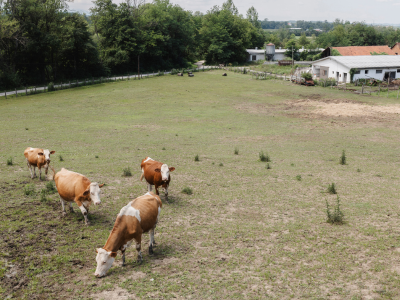
FAO regional workshop discusses response to ruminant disease outbreaks in Europe
26/06/2025

Smallholder woman farmer flourishing with innovative cheesemaking and modern dairy production practices in Georgia
06/06/2025
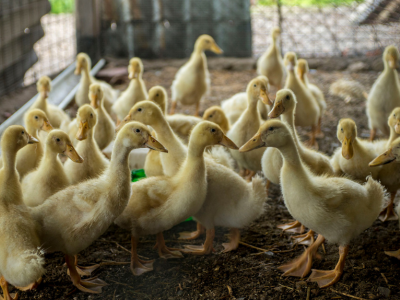
FAO launches two-year initiative to prevent antimicrobial resistance in the Moldovan agrifood sector
04/06/2025
The Republic of Moldova is stepping up its efforts to combat antimicrobial resistance (AMR) within its agrifood sector through a comprehensive new project launched by the Food and Agriculture Organization of the United Nations (FAO) in collaboration with national authorities. The initiative was inaugurated through a series of workshops held in Chișinău from 12 to 16 May 2025. More than 30 national partners from the agrifood and health sectors gathered to strengthen intersectoral cooperation and assess progress in the Republic of Moldova on combating AMR.

Virtual training for veterinarians aids in the reporting and prevention of zoonoses
30/05/2025
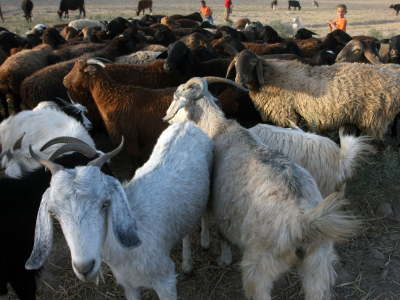
FAO: Cross-border collaboration is key to eradicate peste des petits ruminants by 2030
23/05/2025
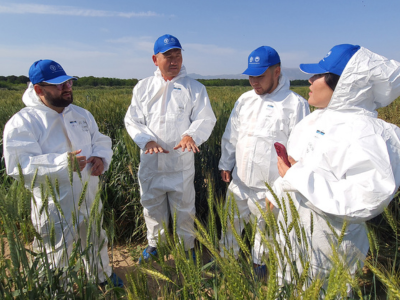
Where the wind carries hunger
13/05/2025
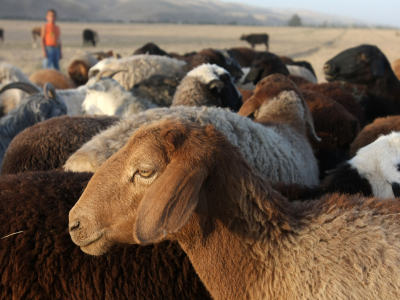
Uzbekistan pushes forward on PPR eradication with a national seromonitoring programme
07/05/2025
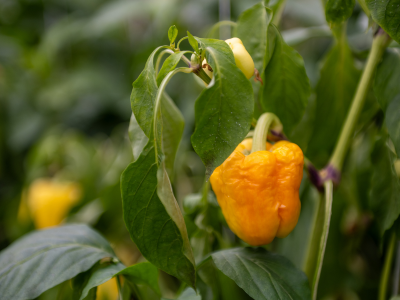
For the first time, FAO offers regional virtual learning course on tackling food loss and waste
30/04/2025
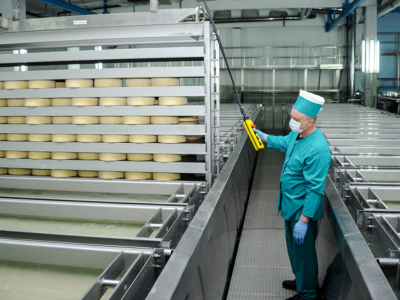
Belarus committed to taking food control systems to the next level
25/04/2025
Components
- Implementation of trade agreements to increase access to new markets
- Increased capacity to implement global standards
- Supportive policy environment for domestic agrifood markets and export promotion


